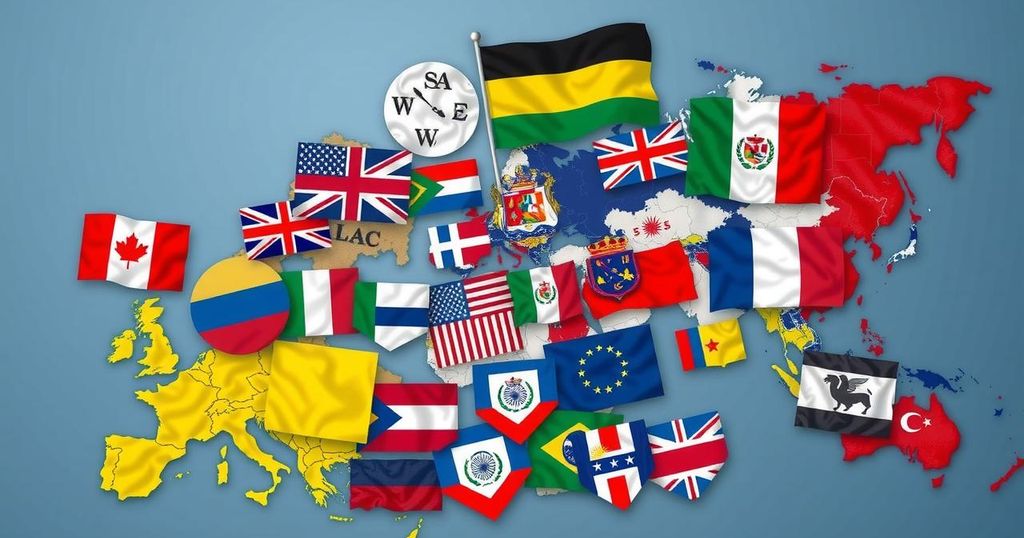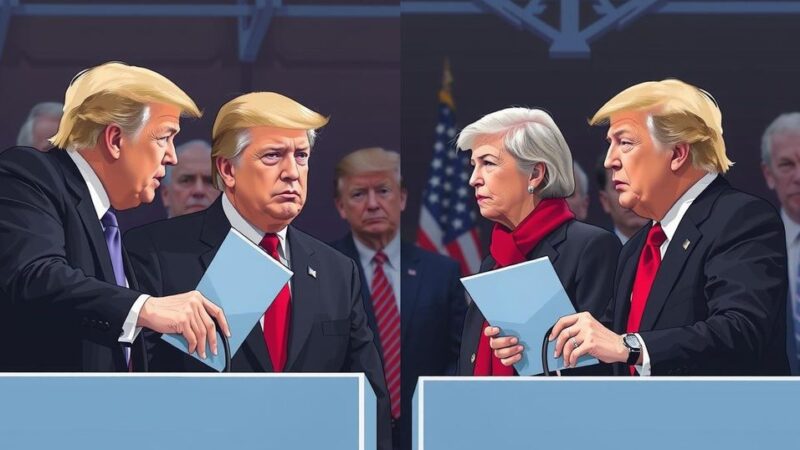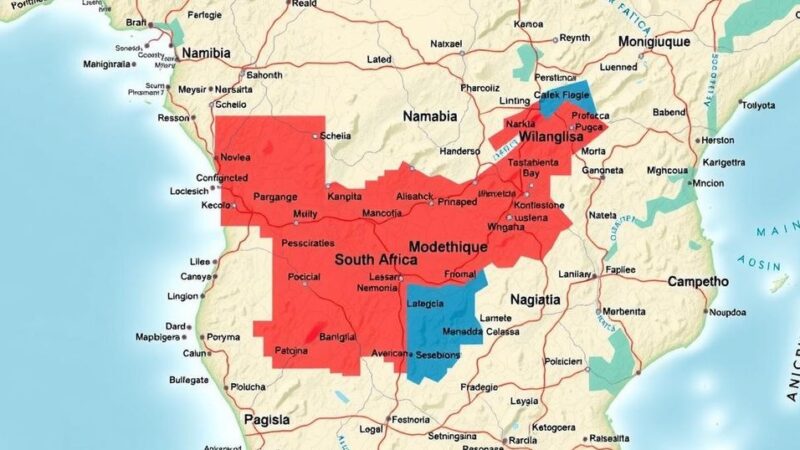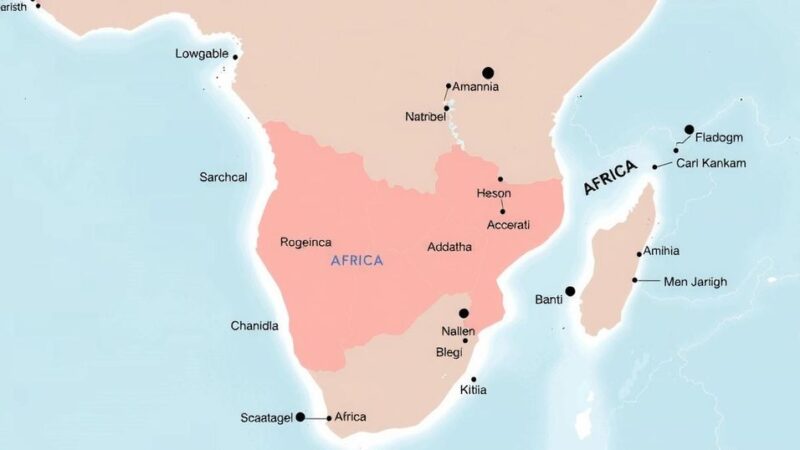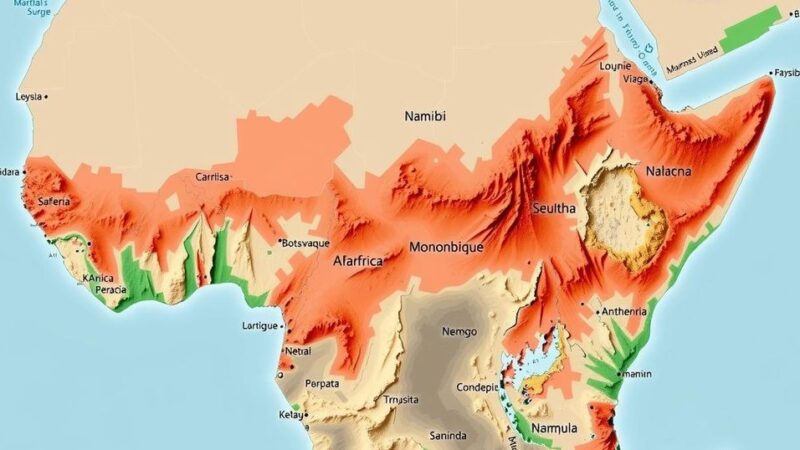The Netherlands implements strict new migration laws amid a surge in asylum applications. In Sudan, a deadly attack by the RSF highlights escalating violence and a humanitarian crisis. South Korea sees widespread protests against same-sex benefits, revealing societal divides. China condemns a U.S. arms deal with Taiwan, promising countermeasures. In Bulgaria, exit polls indicate challenges in coalition-building after the latest elections, marking continued political instability.
In recent developments across various regions, several significant events have unfolded, revealing ongoing tensions and shifts in policy. On Friday, the nationalist administration of the Netherlands advanced stringent migration regulations in Parliament, aiming to enhance border security and eliminate mandatory municipal settlement for asylum-seekers, along with restricting family reunification. This policy change follows a record of 51,000 asylum applications filed in the previous year, aligning with similar moves towards stricter immigration controls observed in Italy, Sweden, and other EU nations. In Sudan, an attack perpetrated by the Rapid Support Forces (RSF) on Friday resulted in the tragic deaths of at least 124 individuals in the village of Al-Sareeha. This assault, which also left over 200 injured and 150 detained, exacerbates the ongoing conflict between the RSF and the Sudanese Armed Forces, contributing to a dire humanitarian crisis that has displaced millions of citizens. Moreover, in South Korea, approximately 230,000 Christians gathered in Seoul on Sunday to voice their opposition to a recent court ruling that allows same-sex partners to receive spousal health benefits. The organizers claimed the attendance exceeded a million participants, though police estimates were lower, illustrating a significant societal division on this contentious issue. Internationally, China expressed its condemnation of a $2 billion arms sale approved by the United States for Taiwan, marking the 17th arms transaction under the Biden administration. Beijing warned that this sale, which includes sophisticated air defense systems, profoundly undermines China-US relations while jeopardizing peace and stability in the Taiwan Strait, claiming it would invoke “countermeasures” to protect its sovereignty. Lastly, Bulgaria’s political landscape is undergoing a transformation as exit polls suggest that Boyko Borisov’s GERB party is leading in the nation’s seventh election in three years. However, the task of coalition-building remains complex, especially following the June election’s outcome, which resulted in a hung Parliament. This election saw the pro-Russian Vazrazhdane party by not meeting expectations, while the Reformist PP-DB party performed better than anticipated, with final results anticipated to be disclosed on Monday.
The article discusses critical developments that reflect broader socio-political trends in Europe and Asia. In the Netherlands, the surge in asylum applications has catalyzed a definitive shift towards stricter immigration policies, reflecting the growing concerns over immigration across the European Union. In Sudan, the ongoing conflict is exacerbating humanitarian challenges, with violent skirmishes leading to significant civilian casualties. South Korea’s protest highlights the deep-seated divisions within its society regarding LGBTQ+ rights, particularly as legal battles over same-sex marriage grow more pronounced. China’s reaction to U.S. military support for Taiwan underscores the ongoing tensions in cross-strait relations and the implications of international arms sales on regional security. Finally, Bulgaria’s political climate reveals the persistent instability and complexity of coalition governance in a rapidly evolving electoral landscape.
In summation, the current geopolitical and social narratives across the Netherlands, Sudan, South Korea, China, and Bulgaria illustrate a significant interplay of policy changes, societal divisions, and international relations. Each event is pivotal in shaping the respective national discourse and reflects ongoing challenges that require astute navigation by both domestic leaders and international bodies. The implications of these developments extend far beyond their borders, influencing regional stability and global diplomatic relations.
Original Source: www.gzeromedia.com

